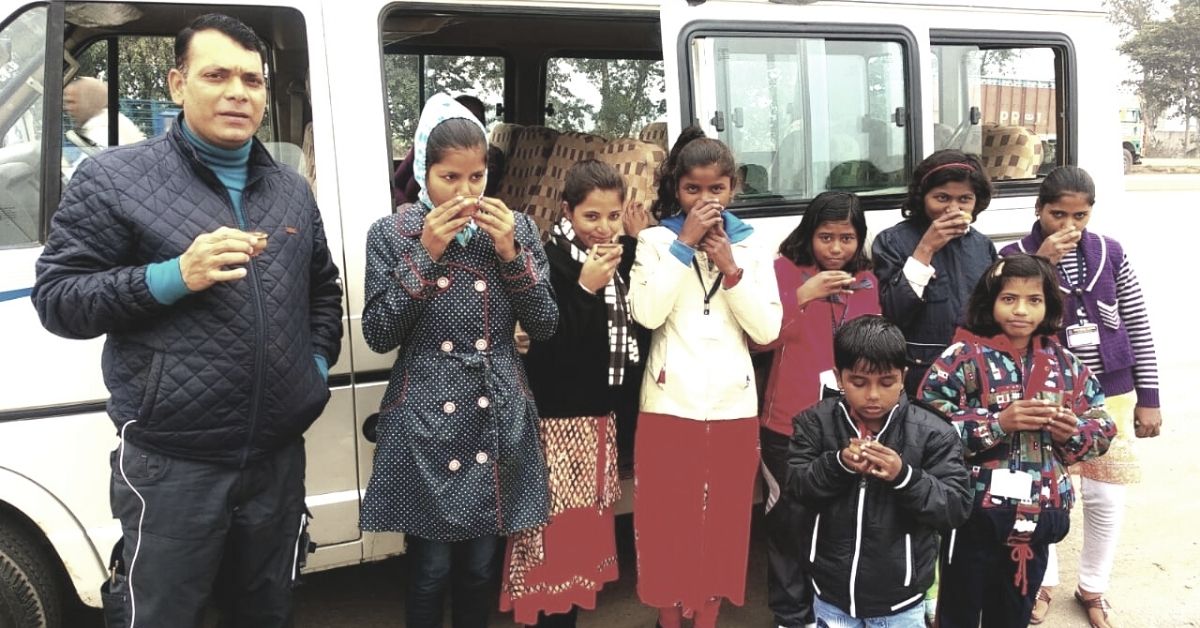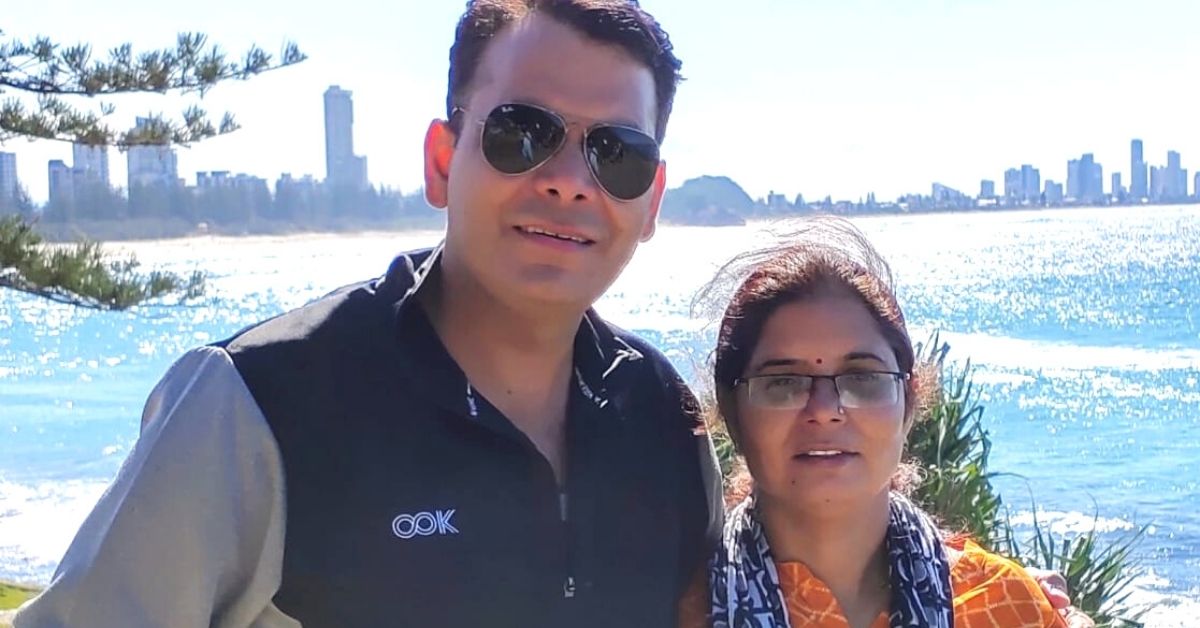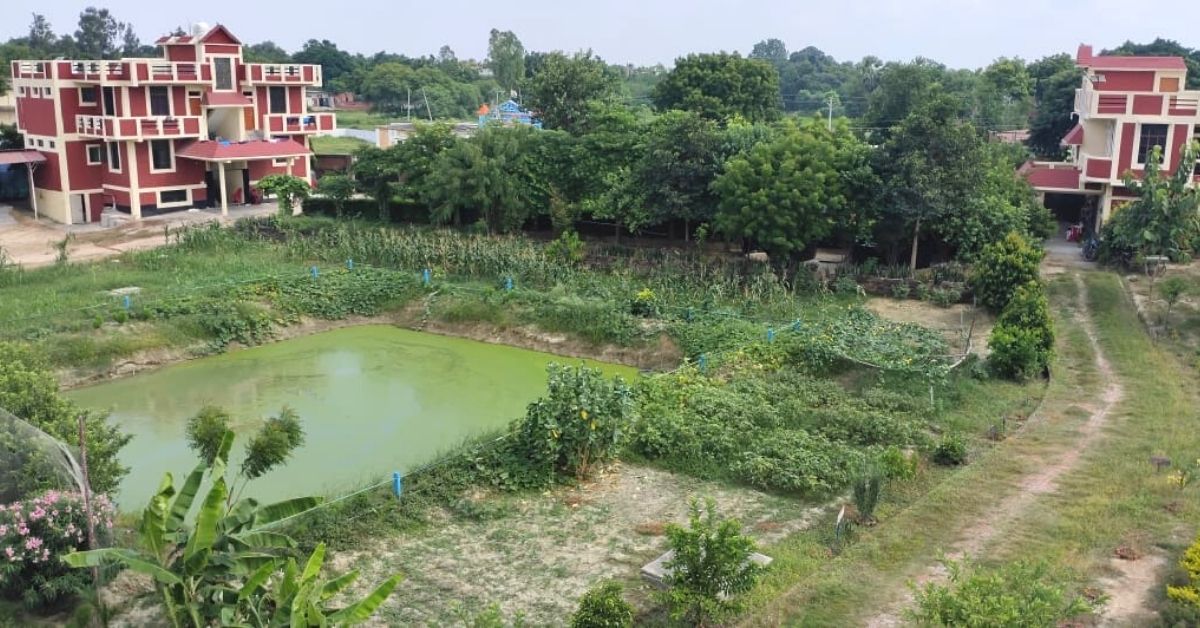How A Varanasi Couple Rescued and Adopted 50 Children Addicted to Substance Abuse
Ashish and Puja Singh from Varanasi run Kutumb, a foundation that rehabilitates young children addicted to substances. They also operate a nursery school for 80 children during the day

India has a high number of substance users, and it’s likely that a child you see at traffic signals or in public places like railway stations, bus stands, and others areas, is addicted to drugs. In fact, over 30 lakh children in India are addicted to drugs and inhalants. Most of us are aware of their struggles, but only watch them from the comforts of our two-wheelers or air-conditioned cars.
One couple in Varanasi has chosen to act differently. Over the last 20 years, Ashish Singh and his wife, Puja, have rehabilitated over 50 children and helped them recover from addictions, giving them a new lease of life.
In 2000, Ashish had just graduated from the Kanpur Medical College, and joined Mahila Chetna Samiti Drug Rehabilitation, a de-addiction centre in Varanasi. His job involved visiting various parts of the city and identifying people addicted to drugs, so they could be rehabilitated.

“We admitted people for a duration for 15 days, and provided them counselling and medical treatment. However, during my stint at the institute, I learned that only 5% people recovered, while others relapsed and required readmission,” Ashish says.
The 43-year-old met his wife, Puja, at the institution, where she worked as well. On one occasion, they learned through news coverage that many children at the railway station were addicted to inhalants such as thinner. It pained them. They conducted a survey which revealed that the youngsters were natives of Bihar, West Bengal, Chhattisgarh, and other parts of India, and had no family.
“They were children of migrant workers, orphans, or had been abandoned by their families. They worked odd jobs and spent most of their earnings on drugs, rather than food. We wanted to focus on the young children, who had fallen prey to addiction at such a young age,” Ashish says.
A family for the abandoned
By 2002, Ashish and Puja had identified three children, aged two, two-and-a-half and six years respectively. Arrangements were made for them in one of the rooms in their house, and they began to counsel them.
“We reached out to the local police department to check details of the missing persons and children. We gathered information from the children regarding their language and native place. After confirming they had no guardians, the kids were brought home,” Ashish explains. The couple registered their NGO by the name of Kutumb.

Towards the end of 2003, a German nurse visiting the city saw the couple helping children at the railway station. “Nikola Frock was a tourist and took note of our work. She offered financial help after realising we were struggling for money. It was a brief acquaintance, and we did not believe the lady would trust us immediately to help. But a few days later, she transferred Rs 56,000, and since then, has transferred money every month in small amounts,” Puja says.
Puja used the money to buy stationery, clothes and other useful material. Their work was noticed once again, in 2005, when a few French tourists learned about them and offered financial support. Another big help came from the USA through an organisation, Vision Builders, in 2009, wherein they offered to purchase land to create a 3-acre facility called Kutumb Village for the children.
Over the years, many people from the city referred to Kutumb for abandoned or lost children, and the numbers increased.
“The house was too small, of about 800 square feet, and we had over 20 children living with us. The place had issues like shortage of water supply and poor electricity. Hence, Vision Builders insisted we acquire adequate space,” she says.
Creating an inspired generation

At present, Ashish and Puja live with 50 children, adopted over the years. The children are being educated so they can mainstream society. They are sent to school and granted scholarships to meet expenses. The old centre still functions and works as a community dispensary to attend to patients. It also operates as a nursery school for 80 children during the first half of the day.
The children residing with the NGO are ambitious and want to pursue their dreams.
Manshi was three-and-a-half years old when she first came to the NGO. “I am now 17 years old and studying in Class XII. My wish is to become a gynaecologist,” she says.
Thirteen-year-old Gungun, also living at the facility, says, “I wish to become a computer engineer, for which I receive immense help and support from Puja. All us children also take care of each other and participate in daily activities.”
Beyond rehabilitating children

Puja says the NGO was lucky to receive funds and donations when they needed them most. But that didn’t mean there weren’t other hardships. “It was difficult for us to understand the legalities involved in adopting children. We had to gain knowledge and create the right network to address various issues. We had no guidance from anyone, nor any workforce to take care of the children. Things became smoother after the Child Welfare Committee (CWC) was established in 2010 and began assisting in rehabilitating children,” she adds.
Beyond helping the children, Ashish and Puja have recently started a skill training centre for women. “About 20 women are learning sewing, pottery, beauty courses, making incense sticks and other skills to become financially independent. We have also started organic farming to teach the children and women how to become self-sustained,” she adds.
Looking back at the years, Puja says that she is glad she could help these children become responsible citizens. “They are the next generation and should be independent. These children never had parents or a relative, so they bond and treat each other like siblings. This Kutumb community is their family. They will always have a place to come back to, even once they get jobs and venture out of the village,” she says.
Edited by Divya Sethu
If you found our stories insightful, informative, or even just enjoyable, we invite you to consider making a voluntary payment to support the work we do at The Better India. Your contribution helps us continue producing quality content that educates, inspires, and drives positive change.
Choose one of the payment options below for your contribution-
By paying for the stories you value, you directly contribute to sustaining our efforts focused on making a difference in the world. Together, let’s ensure that impactful stories continue to be told and shared, enriching lives and communities alike.
Thank you for your support. Here are some frequently asked questions you might find helpful to know why you are contributing?


This story made me
-
97
-
121
-
89
-
167













